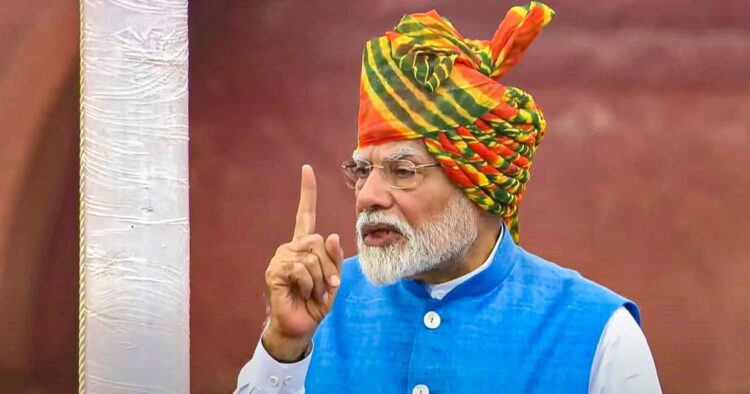Prime Minister Narendra Modi introduced a new term, “Secular Civil Code,” during his Independence Day address from the Red Fort, sparking widespread curiosity and debate. PM Modi described the current civil code as “communal” and emphasized the need for a “secular” alternative, marking a significant shift in the ongoing discussion about India’s civil laws.
The term “Uniform Civil Code” (UCC) also known as Common Civil Code, has been a longstanding subject of debate in India, enshrined in Part 4, Article 44 of the Indian Constitution. It advocates for a uniform set of civil laws across the country, covering issues like inheritance, marriage, adoption, succession, and divorce, irrespective of religion, community, race, sex, or caste. However, PM Modi’s reference to the current civil code as “communal” suggests a rethinking of how these laws are perceived and implemented.
Clearing the discussion over the new term, BJP Minority Wing Chief Jamal Siddiqui clarified that the Secular Civil Code and CCC are fundamentally the same but with a different approach. He praised PM Modi for making the discourse more accessible and emphasized that a secular country like India should have a civil code that reflects its secular character.
Notably, going forward with the implementation of the law, Uttarakhand became the first Indian State to enact a Common Civil Code, with the process of the framing of rules underway, likely to be formalised by the end of 2024, officials said. CCC was also a key election promise in BJP manifestos, but had to be stalled due to opposition.
Under the influence of Several political parties like Congress, TMC, AIMIM including several others, Tribal bodies in Chhattisgarh and the Northeast have also been opposing the UCC saying that it will harm the multicultural social fabric of the country, while the BJP contests that it is essential for constitutional equality for all Indians regardless of religion.
As the debate over the Secular Civil Code intensifies, it underscores the complexities of balancing India’s rich cultural diversity with the need for uniformity in civil laws. While supporters argue that a secular civil code is essential for ensuring equality across all religious groups, critics caution that it could disrupt the country’s heterogeneous social fabric, especially concerning tribal communities and regional customs.

















Comments